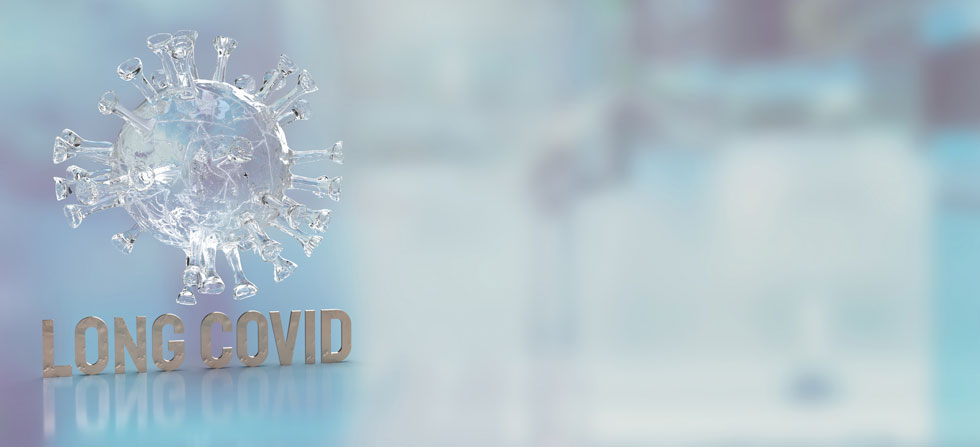Foreword by Dr Chandrashekhar Meshram
Chair WFN Tropical and Geographical Neurology Specialty Group
We would like to thank B. Jeanne Billioux and Avindra Nath for providing timely updates about COVID- 19 and other neurological infections since this blog was created.
On May 5, 2023, WHO announced that COVID-19 no longer constituted a public health emergency of international concern. However, it is still endemic in many countries, and we are getting reports of infections with newer variants of COVID-19. We come across various manifestations of long covid in clinical practice and therefore these updates are very relevant.
December 23 update highlights the association of serotonin deficiency as a possible mechanism for brain fog or cognitive impairment in long covid and its possible therapeutic implications. It also mentions various immune factors which may contribute to the development of long covid .
By B. Jeanne Billioux, MD and Avindra Nath, MD
For this Neuro-COVID-19 update, we review two recent articles which attempt to identify mechanisms for the pathophysiology of Post-Acute Sequelae of COVID-19 (PASC), or Long-COVID.
In a recent Cell article, Wong et al. found evidence of a link between PASC and decreased levels of serotonin. Through metabolomics, the authors found that in several cohorts of patients with PASC, the most remarkable protein derangement was a reduction of serotonin. This was also found in patients with acute COVID-19, but not in patients who had had COVID-19 and fully recovered.
The authors were able to recreate these findings in a number of animal models, not only with SARS-CoV-2 infection, but also with other viral infections such as VSV and LCMV, as well as inflammation caused by viral products. They further found that the mechanisms for lowered serotonin were multiple, and included viral inflammation-related reduction in intestinal tryptophan (a serotonin precursor amino acid) uptake, decreased serotonin storage through reduction in platelets, and increased turnover through serotonin-metabolizing enzymes. This serotonin deficiency was found only to be peripheral, and not in the brain, despite the authors findings that animal models of virally-induced serotonin deficiency exhibited cognitive decline (analogous to PASC patients with "brain-fog" and other cognitive complaints); the authors postulate that the cognitive deficits seen in serotonin deficiency may be mediated by the vagus nerve. Moreover, when the authors were able to reverse the serotonin deficiency (through either serotonin precursor supplementation or use of selective serotonin reuptake inhibition), the animals' cognitive scores improved.
This paper provides intriguing potential mechanisms for the pathophysiology of PASC (as well as other post-viral syndromes), and importantly, mechanisms for which there may be therapeutic implications (Wong 2023). It is known that SARS-CoV-2 can infect the intestinal mucosa, hence it possible that the infection and associated inflammation may alter tryptophan transport. Whether similar mechanisms are operative in other post-viral syndromes such as Myalgic Encephalomyelitis/Chronic Fatigue Syndrome needs to be determined.
To further understand the immunological pathogenesis of PASC or Long-COVID, a group led by Akiko Iwasaki looked at various immune parameters and immunophenotyping of patients with Long-COVID (LC) and control groups in a recent article published in Nature. The authors found evidence for activation of innate immune responses as evidenced by higher levels of non-conventional monocytes and elevated MHC Class II (HLA-DR) expression. Lymphocytes showed increased levels of markers of exhaustion, but upon stimulation could produce high levels of cytokines. This difference was also notable in the immune response to SARS-CoV-2, as patients with LC had a more robust anti-spike protein humoral response and increased levels of complement C4b compared to controls. The authors postulate that this finding could be consistent with persistent viral antigen (although this aspect was not specifically addressed). LC patients also had significantly lower levels of cortisol (which did not correlate to abnormal ACTH levels). In addition, LC patients also had higher levels of anti-viral immune reactivity to several herpesvirus antigens, including several Epstein Barr Virus (EBV) antigens and a Varicella Zoster Virus (VZV) antigen, in the absence of markers of acute infection such as EBV viremia or IgM elevation; of note, the seroprevalence of the LC and control groups was also not significantly different. No evidence of differential auto-antibodies was found between LC and control groups to over 6000 human proteins tested.
The many findings in this paper suggest a variety of factors may contribute to the development of Long-COVID, including persistent SARS-CoV-2 antigens, reactivation of latent herpesviruses, and chronic inflammation; the authors did not find evidence of an autoantibody-related disease process in this study, however (Klein 2023).
The mechanisms by which long COVID or PASC occur are still in the process of being elucidated, but hopefully with continued studies such as these and clinical trials based on such findings, the scientific and medical community will start to have more answers towards managing this problematic issue.
References
- Wong AC, Devason AS, Umana IC, Cox TO, Dohnalová L, et al. Serotonin reduction in post-acute sequelae of viral infection. Cell. 2023 Oct 26;186(22):4851-4867.e20. Epub 2023 Oct 16. DOI: 10.1016/j.cell.2023.09.013 ⧉
- Klein J, Wood J, Jaycox JR, Dhodapkar RM, Lu P, et al. Distinguishing features of long COVID identified through immune profiling. Nature. 2023 Nov;623(7985):139-148. DOI: 10.1038/s41586-023-06651-y ⧉








